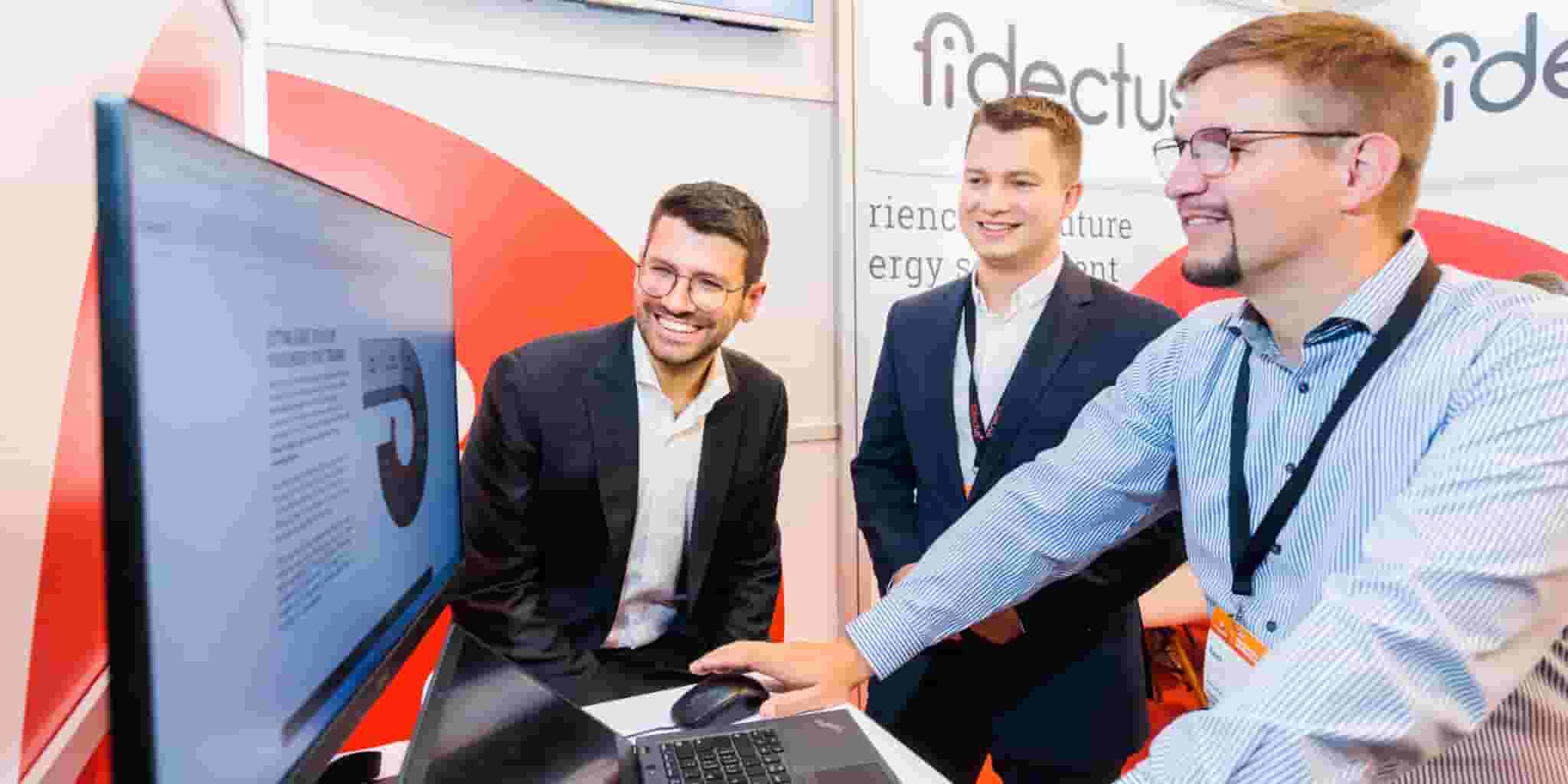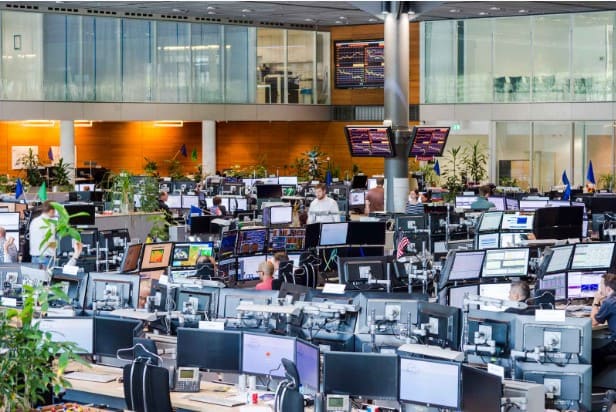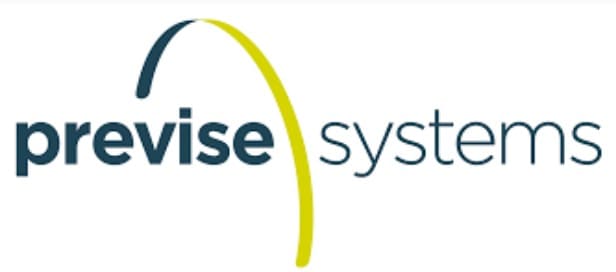Next generation eCM and eSM solutions at E-world 2022
Zürich, 28. June 2022 - E-world 2022 has finished. Interest at Fidectus´ booth has been off the charts. Fidectus had a constant flow of traders and...
Energy Traders Europe (formerly known as EFET) has recently updated and published their industry standards eCM 4.5 for Confirmations and eSM 3.5 for Settlements to explicitly cover interoperability between service providers such as Fidectus and other third party service providers. This is a significant step forward in promoting market transparency and fostering fair competition. It will allow Energy Traders Europe to reach their full potential by greeting the largest network of wholesale energy trading participants in Europe.
Fidectus is proud to be supporting Energy Traders Europe in their efforts to establish interoperability for open markets and fair competition. The new sections have been published by Energy Traders Europe on July 24, 2024 and are now in effect (source: https://www.energytraderseurope.org/data-standard-overview).
See below for a selection of detailed extracts.
Energy Traders Europe's electronic Confirmation Matching Version 4.5
The new version 4.5 on eCM states the following on pages 12/13 in the new section 2.2.5 (Interoperability Considerations) added:
"Interoperability is defined as the ability of trading parties (seller or buyer) to exchange documents compliant with a standard developed by Energy Traders Europe as well as other electronic messages containing essential information elements required by both parties with Service Providers. The ability to exchange these documents is independent of the information technology environment, back-office systems, or third-party solutions or services used by each party. Examples of standards that support such interoperability are eCM, eSM and eRR.
Interoperability provides a minimum (but not limited to) mandatory level of technical connectivity between Customers and Service Providers and between Service Providers offering access to an interoperable network (such as eCM, eSM or eRR). The connectivity in this context is compliant with the Communication Standard developed by Energy Traders Europe.
It is essential to consider and not to limit the requirements and facilities required to fully support the needs of end users, that is, the energy trading parties in the chain. The Communication Standard should, therefore, not be considered to be limiting technical connectivity options, but as a means to ensure a minimum basic level of mandatory compliance. The Communication Standard facilitates Customer Switching between Service Providers and ensures market entrance for new Service Providers that want to join the interoperable network. At the same time, Service Providers are not limited from offering alternative mechanisms and technology options for connecting Customers to its services, or connecting other Service Providers to its service by mutual agreement. Customer Switching is defined as the ability of a Customer to change Service Provider.
Service Providers offering services related to standard developed by Energy Traders Europe (such as eCM, eSM or eRR) are required to also offer an Interoperability Service, as set out in the eSM, eCM and eRR standards.
Interoperability Service means the automated services provided by a Service Provider to other Service Provider(s) related to the implementation and maintenance of an interconnection between Service Providers’ systems and to the transmission and processing of messages in accordance with the standards developed by Energy Traders Europe, that is, the Communication Standard and the eSM, eCM and eRR standards, as well as other agreed upon requirements and carried out on behalf of their respective Customers, as set out between Service Providers. The term Interoperability Service expressly includes services either Service Provider may offer to its own Customers, that is, the energy trading parties."
Energy Traders Europe electronic Settlement Matching Version 3.5
The new version 3.5 on esM states the following on pages 10/11 in the new section 2.2.3 (The eSM Standard developed by Energy Traders Europe) added:
"The eSM standard consists of the definition of the message flow, message content and message structure, and matching criteria and rules, for the information exchanged during an eSM process.
The structure of the eSM messages, and – to some extent – the content of the messages, will, where possible, reuse similar elements developed for other messages that have already been defined in other standards developed by Energy Traders Europe. The applied data definitions and technical specifications, as laid down in CpML® will be reused where possible and applicable. The eCM and eRR standards (and CpML® reference documentation) will therefore act as an important foundation and the eSM standard continues to demonstrate the strategic aim of Energy Traders Europe to develop global standards covering the complete business requirements of traders.
Interoperability is defined as the ability of trading parties (seller or buyer) to exchange documents compliant with a standard developed by Energy Traders Europe as well as other electronic messages containing essential information elements required by both parties with Service Providers. The ability to exchange these documents is independent of the information technology environment, back-office systems, or third-party solutions or services used by each party. Examples of standards that support such interoperability are eCM, eSM and eRR. A Service Provider in this context is a third party that offers standardized services related to these standards developed by Energy Traders Europe.
Interoperability provides a minimum (but not limited to) mandatory level of technical connectivity between Customers and Service Providers and between Service Providers offering access to an interoperable network (such as eCM, eSM or eRR). The connectivity in this context is compliant with the Communication Standard developed by Energy Traders Europe.
It is essential to consider and not to limit the requirements and facilities required to fully support the needs of end users, that is, the energy trading parties in the chain. The Communication Standard should, therefore, not be considered to be limiting technical connectivity options, but as a means to ensure a minimum basic level of mandatory compliance. The Communication Standard facilitates Customer Switching between Service Providers and ensures market entrance for new Service Providers that want to join the interoperable network. At the same time, Service Providers are not limited from offering alternative mechanisms and technology options for connecting Customers to its services, or connecting other Service Providers to its service by mutual agreement. Customer Switching is defined as the ability of a Customer to change Service Provider.
Service Providers offering services related to standard developed by Energy Traders Europe (such as eCM, eSM or eRR) are required to also offer an Interoperability Service, as set out in the eSM, eCM and eRR standards.
Interoperability Service means the automated services provided by a Service Provider to other Service Provider(s) related to the implementation and maintenance of an interconnection between Service Providers’ systems and to the transmission and processing of messages in accordance with the standards developed by Energy Traders Europe, that is, the Communication Standard and the eSM, eCM and eRR standards, as well as other agreed upon requirements and carried out on behalf of their respective Customers, as set out between Service Providers. The term Interoperability Service expressly includes services either Service Provider may offer to its own Customers, that is, the energy trading parties. [..]."
Want to explore what this could mean for you and your business? Reach out to us today!

Zürich, 28. June 2022 - E-world 2022 has finished. Interest at Fidectus´ booth has been off the charts. Fidectus had a constant flow of traders and...

Zürich, August 05, 2020 – Today, Fidectus is proud to announce RWE Supply & Trading GmbH, one of Europe’s leading energy traders, has chosen the...

1 min read
Zürich, Zug, September 17th, 2021 – Fidectus and Previse Systems today announced a strategic partnership to add Fidectus’ post trade processing...
